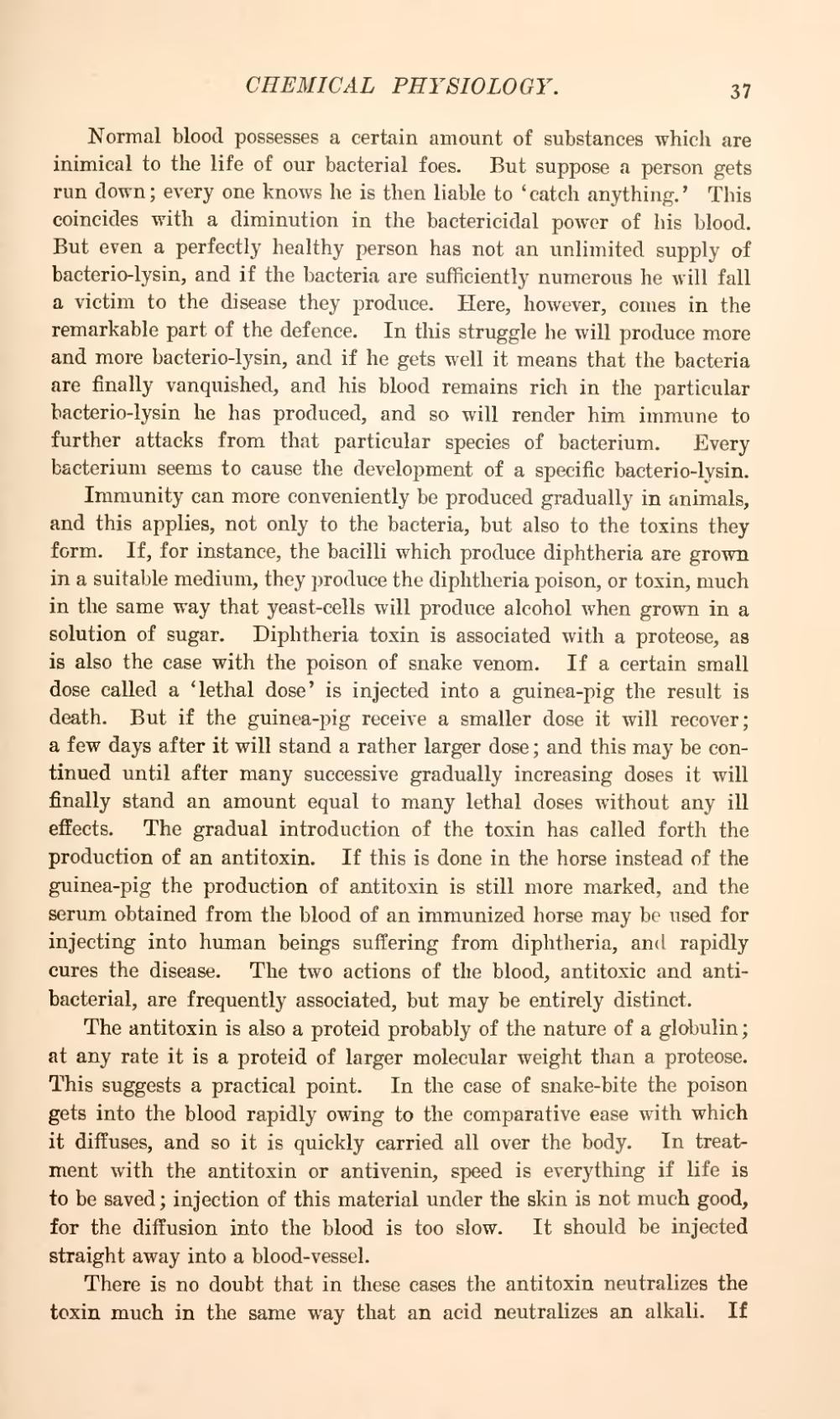Normal blood possesses a certain amount of substances which are inimical to the life of our bacterial foes. But suppose a person gets run clown; every one knows he is then liable to 'catch anything.' This coincides with a diminution in the bactericidal power of his blood. But even a perfectly healthy person has not an unlimited supply of bacterio-lysin, and if the bacteria are sufficiently numerous he will fall a victim to the disease they produce. Here, however, comes in the remarkable part of the defence. In this struggle he will produce more and more bacterio-lysin, and if he gets well it means that the bacteria are finally vanquished, and his blood remains rich in the particular bacterio-lysin he has produced, and so will render him immune to further attacks from that particular species of bacterium. Every bacterium seems to cause the development of a specific bacterio-lysin.
Immunity can more conveniently be produced gradually in animals, and this applies, not only to the bacteria, but also to the toxins they form. If, for instance, the bacilli which produce diphtheria are grown in a suitable medium, they produce the diphtheria poison, or toxin, much in the same way that yeast-cells will produce alcohol when grown in a solution of sugar. Diphtheria toxin is associated with a proteose, as is also the case with the poison of snake venom. If a certain small dose called a 'lethal dose' is injected into a guinea-pig the result is death. But if the guinea-pig receive a smaller dose it will recover; a few days after it will stand a rather larger dose; and this may be continued until after many successive gradually increasing doses it will finally stand an amount equal to many lethal doses without any ill effects. The gradual introduction of the toxin has called forth the production of an antitoxin. If this is done in the horse instead of the guinea-pig the production of antitoxin is still more marked, and the serum obtained from the blood of an immunized horse may be used for injecting into human beings suffering from diphtheria, and rapidly cures the disease. The two actions of the blood, antitoxic and antibacterial, are frequently associated, but may be entirely distinct.
The antitoxin is also a proteid probably of the nature of a globulin; at any rate it is a proteid of larger molecular weight than a proteose. This suggests a practical point. In the case of snake-bite the poison gets into the blood rapidly owing to the comparative ease with which it diffuses, and so it is quickly carried all over the body. In treatment with the antitoxin or antivenin, speed is everything if life is to be saved; injection of this material under the skin is not much good, for the diffusion into the blood is too slow. It should be injected straight away into a blood-vessel.
There is no doubt that in these cases the antitoxin neutralizes the toxin much in the same way that an acid neutralizes an alkali. If
